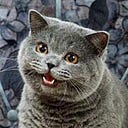This was CS50x Puzzle Day 2016
Each year, CS50 starts off with CS50 Puzzle Day, an afternoon of puzzles, pizza, and prizes. The goal is to send a message that computer science isn’t about programming, as many might think, but about problem-solving more generally. Indeed, none of the puzzles require programming experience, or even a computer, just logic and smarts.
Since Fall 2011, the event has been held only on campus for students at Harvard University (and, since Fall 2015, students at Yale University). But in 2016, we decided to invite the whole world as well:
The first-ever, worldwide CS50x Puzzle Day (er, Days) started at 00:00 UTC+14 on Friday, 12 February 2016, and ended at 23:59 UTC-12 on Saturday, 13 February 2016. (Rather than try to get the whole world together for a three-hour block, as we do on campus, we thought it best to accommodate all time zones with a two-day window.) Students were encouraged (but not required) to collaborate on teams with 1, 2, 3, or more classmates (or friends), whether in person or online. Via a Google Form and Google Spreadsheet were students without teammates encouraged to find teammates. And via another Google Form and Google Spreadsheet were students were encouraged to host CS50x Puzzle Day, coordinating a time and place for teams in their area to gather. Upon registration, teams were invited to say “hello, world” to classmates:
Those teams were then challenged with this packet of 12 puzzles, written by CS50's own Doug Lloyd and Aliess Kingsley and by our friends at Facebook:
Stumped by 1 (or more!) of the 12 puzzles? Spoilers ahead!
Ultimately, 2,318 teams comprising 3,792 participants from 135 cities and 50 countries registered for the big day (er, days). Most students (63.8%) registered solo (as teams of size 1), though many teams were of size 2 (19.6%), size 3 (8.1%), and size 4 (7.2%):
Most teams (2,000) worked on the puzzles at home and/or online, while some teams gathered at work (241), school (235), cafes (142), and libraries (98). Several teams (4) worked in a hostel. One team worked “at a debate tournament.” One team worked on a “long roadtrip in the car.” One team (somehow) worked “during [a] tennis match.” One team worked “in a cabin in the woods.” One team worked “in treno,” another “on a plane,” and another “in a car (that I’m not driving).” At least one team worked in an “avatarchat virtualworld.” And one team worked “while on vacation (so please don’t judge).” Oh and one team (supposedly) worked in “outer space.”
Of the 2,318 teams that registered, 429 ultimately submitted solutions. None of those 429 solved all 12 of the puzzles, but 4 of those teams did solve 11 out of 12!
And those 4 winning teams are!
- CAT from New York City, New York, USA, with Amanda Wang, Ruojia Sun, Brandon Lin, and Lucas Weiner
- FAME from Lamia, Fthiotis, Greece, with Evangelia Kavrochorianou, Anita Fekete, Marcella Emmaneel, and Faïza Harbi
- Pochi Ma Buoni from Rome, Italy, with Luigi Morelli, Jose Ignacio Escudero, Carlo Falcinelli, and Walter Pierbattisti
- Rolling Greens from Philadelphia, Pennsylvania, USA, with Adam Wodka and Eric Maxon
Each of those teams will soon receive some prizes from CS50 and Facebook by mail!
Meanwhile, among the 425 other teams that submitted solutions, 356 solved at least 1 puzzle. Here’s how those teams did!
Puzzle #10 was perhaps the hardest (solved by only 2 teams) and Puzzle #4 perhaps the easiest (solved by 250 teams). Here’s how many teams solved each particular puzzle:
And now some scenes from CS50x Puzzle Day 2016 around the world.
